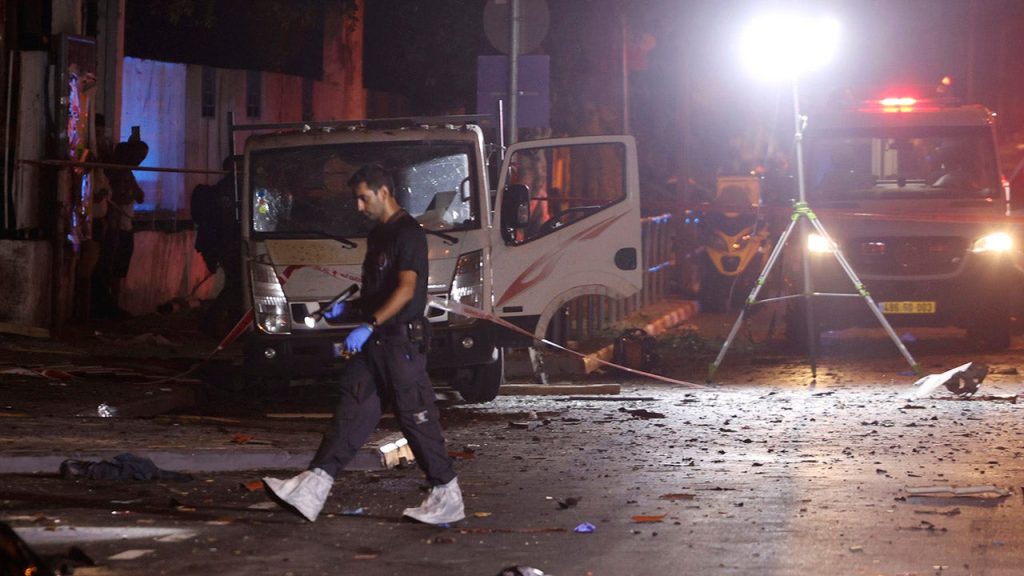Hamas and Islamic Jihad jointly claimed responsibility for a bombing in Tel Aviv that killed the apparent attacker and wounded a bystander in what Israeli officials confirmed as a terrorist attack. The bomb seemed to go off prematurely, and footage showed the presumed attacker with a backpack walking down the street just before the blast. The militant wings of both organizations stated they were behind the explosion as a response to Israeli actions in Gaza and the killing of a Hamas leader in Tehran. Israeli police and security agencies confirmed the attack as an act of terrorism, and investigations and security measures were heightened in the area.
The explosion in Tel Aviv occurred shortly after U.S. Secretary of State Blinken arrived in the city to renew ceasefire negotiations, highlighting the delicate situation in the region. Blinken emphasized the importance of reaching an agreement to end the conflict and secure the release of hostages held by Hamas. However, both Hamas and Israel expressed dissatisfaction with the proposed terms, raising concerns about the potential for further escalation. The visit also coincided with fears of a broader regional war following the targeted killings of militant commanders in Lebanon attributed to Israel.
The Israeli police reported that the explosion killed the presumed bomber and moderately injured a passerby. Security forces were deployed to investigate the incident and ensure the safety of the public, urging vigilance and reporting any suspicious activity. The groups behind the attack threatened more “martyrdom operations” within Israeli territories as a response to ongoing hostilities and policies they view as oppressive. The situation in Gaza and the broader Middle East remains tense, with diplomatic efforts aimed at achieving a lasting ceasefire and addressing the root causes of the conflict.
Blinken’s visit to the Middle East marked his ninth urgent mission to the region since the conflict began, underscoring the complex and protracted nature of the Israeli-Palestinian conflict. Despite the efforts to broker a ceasefire and secure the release of hostages, significant obstacles remain as both sides remain entrenched in their positions. The international community, including the United States, continues to play a crucial role in mediating talks and advocating for a peaceful resolution to the conflict. The recent escalation in violence and the bombing in Tel Aviv underscore the fragility of the situation and the urgent need for diplomatic solutions.
The ongoing violence in the region has resulted in numerous casualties and significant damage, prolonging the suffering of civilians on both sides of the conflict. The recent attack in Tel Aviv is a stark reminder of the persistent threats faced by Israeli citizens and the challenges of achieving lasting peace in the region. The international community must continue to engage with all parties involved to de-escalate tensions, address humanitarian needs, and work towards a sustainable solution that respects the rights and aspirations of all people in the region. The bombing in Tel Aviv serves as a tragic reminder of the human cost of conflict and the urgent need for dialogue, negotiation, and compromise to bring about a just and lasting peace in the Middle East.


